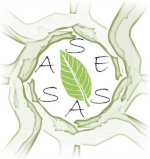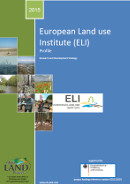The idea behind
A Social-Ecological System Approach towards a Sustainable Intensification of Agricultural Production in Sub-Saharan Africa (SESASA)
Agricultural production in Ghana and Burkina Faso is the main livelihood activity, contributing to regional economic activity. However, farming mismanagement has led to huge biodiversity and land degradation. The characterization of cropping practices and livestock systems is essential to propose sustainable management strategies. By linking farmer responses to social, economic and climate changes at local scale with policy instruments at national scale, SESASA aims at developing a modelling approach to assess land-use land-cover management scenarios. The vision of the project is to explore social-ecological interactions across different spatio-temporal scales and how conflicts between farming activities and livestock production can be harmonized. A model ensemble will be applied to identify multiple human-nature drivers, their impact on agricultural linked with local knowledge and stakeholder perception.The project aims to address the following challenges:
- How can social-ecological-systems be operationalized in terms of smart modelling approaches and architectures to enable a highly flexible and low-data demanding assessment of the performance of agro-ecological systems?
- Which adaptation opportunities for arable farming, grazing and pastoralism – using scenarios – are most recommendable in different agro-ecological zones to minder food and water insecurity?
- How can we transfer such an approach into decision making and consulting? The idea of SESASA is to develop a “System of Systems” to assess agricultural land-use changes by integrating qualitative and quantitative information. The meta-modelling framework will represent typical components of agro-ecological systems and their interactions as well as adaptive feedbacks.










